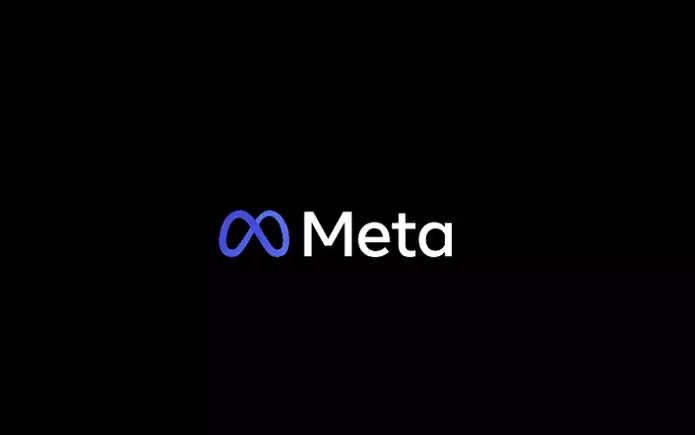Meta, the parent company of Facebook and Instagram, has recently positioned itself publicly as distancing from political content, a strategy that raises an array of questions about its real intentions. While Meta proclaims its commitment to fostering a less divisive environment within its platforms, the reality tells a different story. An ongoing flow of political advertisements laden with misinformation continues to thrive on Facebook, directly contradicting the company’s stated goals. Reports indicate that Meta profits significantly from these misleading ads, generating millions while allowing content that flouts platform regulations to circulate unabated.
What is troubling is not just the presence of harmful content but the nature of the advertisements themselves. Some of them utilize grotesque and sensational imagery aimed at stirring fear and division among users. For instance, portrayals of Vice President Kamala Harris with devilish horns and apocalyptic backdrops exemplify the kind of inflammatory messaging that characterizes these ads. Such tactics echo the dark history of the 2016 election, where foreign entities exploited Facebook to disseminate discord among American voters.
The repercussions of the 2016 U.S. election acted as a crucible for Meta, leading to significant reputational damage and growing scrutiny from the public and lawmakers. This culminated in Mark Zuckerberg being called to testify before Congress regarding the company’s role in facilitating election misinformation. This episode has necessitated a shift in strategy, as Meta sought to quell the backlash by retracting its engagement with news content and announcing a prioritization of more wholesome, entertainment-centric offerings.
While there is an undeniable need for any platform with the scale of Meta to engage with responsible content management, the implementation has often felt more like an act of appeasement rather than a genuine effort to foster accountability. The irony remains that even as Meta attempts to cut off political discourse, it remains inadvertently entangled in the very fabric of political influence and misinformation that it seeks to diminish.
A further complication arises from the inherent nature of social media as a forum for discussion. Political dialogue is deeply woven into public discourse, making it nearly impossible for a platform to genuinely eliminate political content while still fulfilling user needs for interaction and information. Meta’s recent endeavors to mitigate political discussions raise the question: can the company find a sustainable middle ground?
One of Meta’s responses to user feedback has been its focus on increasing the visibility of non-political content such as entertainment and popular media. However, this strategy raises suspicions about its longevity. While repackaging old TV shows into short clips may generate engagement in the moment, it begs the question of whether this tactic will ultimately alienate users seeking genuine discussions about social and political issues.
Furthermore, Meta’s definition of what constitutes “political content” is nebulous at best. By broadly categorizing anything related to government and elections as political, the company leaves itself open to criticism and confusion. This vagueness invites scrutiny about what types of discussions remain permissible on its platforms, particularly as political climates evolve and issues become increasingly complex.
As the landscape surrounding social media continues to evolve, so too must Meta’s approach. The company faces a unique challenge in determining its political discourse policies, especially in the wake of imminent elections. The ever-changing nature of news consumption, combined with the platform’s pervasive reach, means that any misstep could have significant ramifications.
Should Meta decide to wholly eliminate its political restrictions, it must also be prepared for the consequences of that choice, which could lead to an influx of divisive content that damages user engagement and trust. Conversely, if it adheres to its current policies, Meta risks becoming irrelevant to users increasingly inclined to engage in political discussions.
While Meta strives to present itself as a non-political platform, the complexities of real-world user interactions and the company’s historical entanglements with misinformation suggest a far more intricate scenario. As it grapples with the delicate balance between maintaining user engagement and upholding responsible governance, Meta must refine its strategy and definition of political content to establish genuine accountability moving forward. Ultimately, it remains to be seen whether Meta can create a sustainable approach that resonates with users while avoiding the pitfalls of misinformation and polarization that have historically plagued its platforms.

